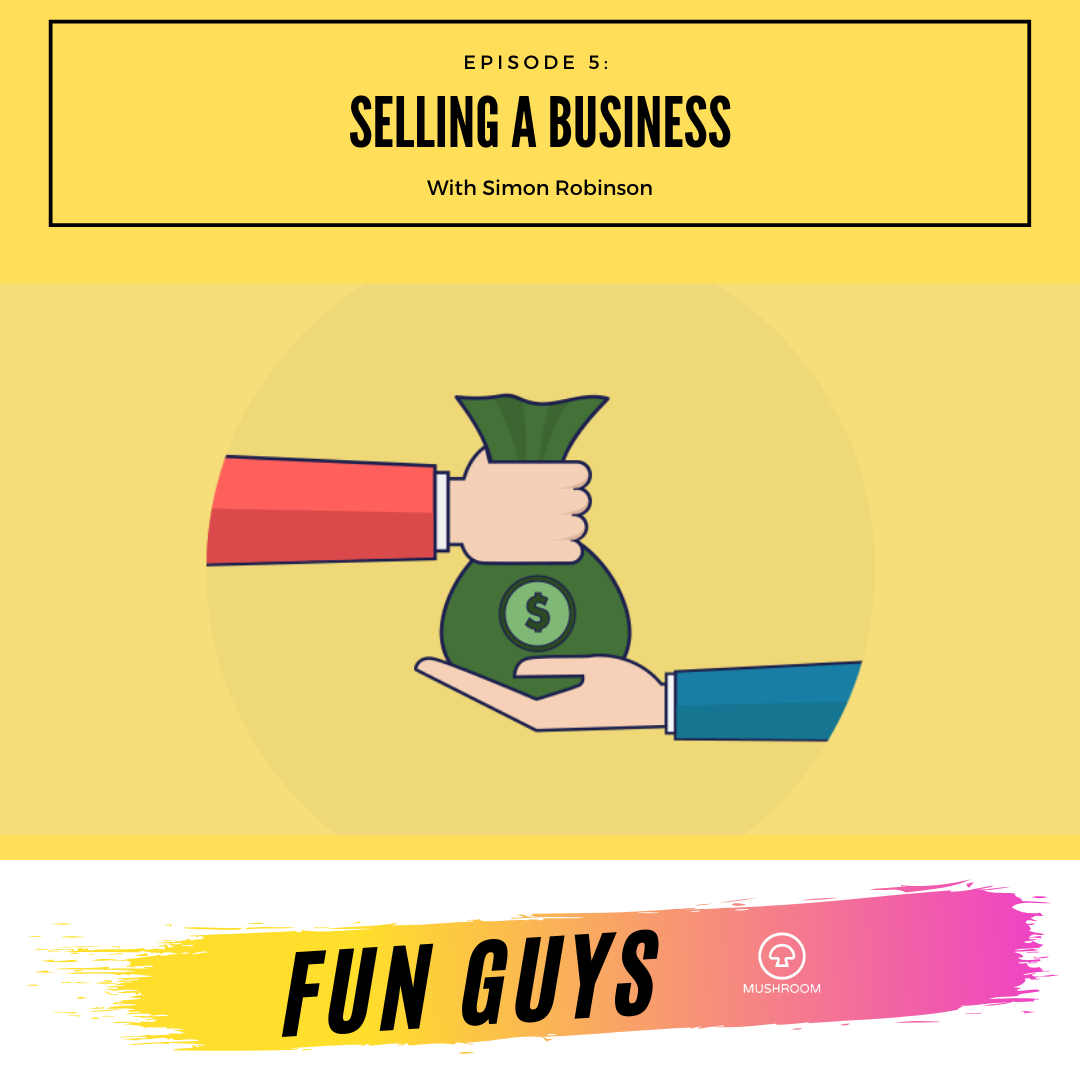
The in's and out's of selling a business
Ed Surman, Director at Mushroombiz, interviewed Simon Robinson, Commercial Services Manager of Mushroombiz, about selling his family business Nexus, some years ago, for Ed’s podcast, Business With The Fun Guys. The podcast interview is available here to listen on our website, however we’ve taken the main points of Robinson’s teachings and illustrate them here:
Robinson said the process of selling his family business in the healthcare sector, Nexus, felt like hell as it took blood, sweat and tears to achieve. Sometimes he lost heart and felt like it would never end. They weren’t in a hurry to sell, which was probably a good thing as it took 4 years to get ready, 18 months from negotiating to signing on the dotted line, plus a 6-month handover period. But once it was all over, what did he learn?
Getting Business Fit For Purpose
Simon had joined the company with the aim of getting the business fit for purpose and ready to sell, to address the unfulfilled potential of the business first to achieve better value. This involved getting processes, systems, policies and procedures up to date and as efficient as possible, including but not limited to:
• Sales
• Clients
• Contacts
• Pipeline
• Property
• Plant and machinery
• Contingent liability
• People
• Brand assets
• Intellectual property
• Licences and consents
• Websites
Of course, similar to selling a house, there is always the option of selling at a lower cost because there is work needed. It is always advisable to be upfront and honest about any issues affecting the business.
Prospectus of Business
A prospectus showcasing all products/services, company profile, markets they operated in, how they operated, the value points of the business and areas of potential was put together and provided to the potential buyer. This included:
• Accounts for the last few years – profit and loss, balance sheet and cash flow statements.
• Copies of any leases and insurance policies
• Copies of any agreements
• Copies of any contracts
• Brief company profile
• Detailed company profile including products/services and markets, customers and competitors, distribution, personnel, finances, processes, timescales.
• The future
This helped the prospective buyer gain the information it required in order to make a decision and how much they would be willing to offer. It would be expected that the buyer would also do it’s own due diligence on the company.
Negotiating
A buyer for Nexus was found before finding a broker or putting a business for sale sign up. The buyer was a long standing customer, who were in a related field, not a direct competitor, but Nexus’ products/services would enhance their offering. This suggests that potential sellers may benefit from talking to any existing connections either face to face or on LinkedIn as a starting point.
After the proposal and pitch, Nexus received the first offer, and it was low. But rather than feel defeated and give up, they realised that this was common, and they continued to negotiate upwards and 2-3 months later, negotiated a deal both sides were happy with.
Advisors
Nexus had a great advisory team including accounts and legal experts working with them. Not only did they help reign in emotions, they knew what they were talking about and their years of experience and knowledge was invaluable. A common worry can be giving away a percentage of the profits to others but by having good advisors, more will be gained, and there is the tendency to lose more by going alone.
For 18 months Nexus were trying to prepare for the sale of the business whilst keeping the company going on a day to day business. If too much focus is placed primarily on the sale, then the company itself can be affected. Lots of resolve and resilience are needed, but this is where good advisors can also help.
